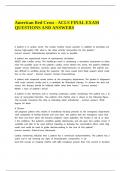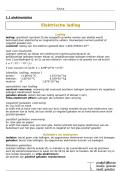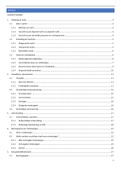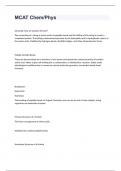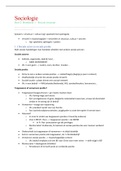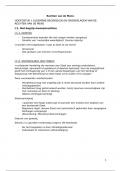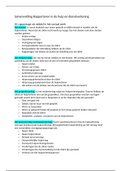1.3 Bazerman, M.H. 2020. A new model for ethical leadership. Harvard Business Review, September-October.
This piece is a defense of utilitarian thinking in business, focusing on how to maximize value. Do you agree or disagree
with the author about this being the best approach? Think about alternatives and the implications of this line of argumentation on
your own decision-making.
“In my view, leaders answering ethical questions like these should be guided by the goal of creating the most value for
society. Moving beyond a set of simple ethical rules like don’t lie, don’t cheat.
If we behave unethically out of self-interest, we’re often unaware that we’re doing so – a phenomenon known as
motivated blindness.
Utilitarianism: Argues that ethical behavior is behavior that maximizes “utility” in the world – value. Maximizing aggregate
well-being and minimizing aggregate pain, goals that are helped by pursuing efficiency in decision-making, reaching moral
decisions without regard for self-interest, and avoiding tribal behavior (such as nationalism or in-group favoritism).
Bounded rationality: Behavioral economics – sees managers as wanting to be rational but influenced by biases and other
cognitive limitations that get in the way.
Bounded ethicality: Systematic cognitive barriers that prevent us from being as ethical as we wish to be.
In the ethics domain we struggle with bounded ethicality.
Maximum sustainable goodness: The level of value creation that we can realistically achieve.
“Executives unconsciously overlook wrongdoing if it benefits them or the company”
According to Kahneman’s book “Thinking, Fast and Slow” we have two different modes of decision-making.
1. System 1: Our intuitive system, which is fast, automatic, effortless, and emotions. We make most decisions using
System 1.
a. When evaluating one option (such as a single job offer or a single potential charitable contribution), we lean
on System 1 processing. But when we compare multiple options, our decisions are more carefully considered
and less biased, and they create more value. We donate on the basis of emotional tugs when we consider
charities in isolation; but when we make comparisons across charities, we tend to think more about where our
contribution will do the most good.
b. When people evaluate job candidates one at a time, System 1 kicks in, and they tend to fall back on gender
stereotypes. For example, they are more likely to hire men for mathematical tasks. But when they compare
two or more applicants at a time, they focus more on job-relevant criteria, are more ethical (less sexist), hire
better candidates, and obtain better results for the organization.
2. System 2: Our more deliberative thinking, which is slower, conscious, effortful, and logical. We come much closer to
rationality when we use System 2.
a. The deliberative system leads to more-ethical behaviors.
b. Involves a veil of ignorance. If you thought about how society should be structured without knowing your
status in it (rich or poor, man or woman, Black or white)-- that is behind a veil of ignorance – you would
make fairer, more-ethical decisions.
i. Veil of ignorance is that you don’t know anything about yourself. You have to design a society that
looks fsir & just for you. You should be willing to go into any place in that society.
c. Greene shows that those who make ethical decisions behind a veil of ignorance do create more value. They
are more likely to save more lives with scarce resources, because they allocate them in less self-interested
ways.
Creating Value Through Trade-offs
The field of decision analysis argues that we need to know how much of one attribute will be traded for how much of
the other to make wise decisions. Selecting the right job, house, vacation, or company policy requires thinking clearly about the
trade-offs.
The easiest trade offs are to analyze and involve our own decisions. Once two or more people are engaged in a decision
and their preferences differ, it’s a negotiation. Typically, negotiation analysis focuses on what is best for a specific negotiator.
Common family negotiation: You counterpropose your favorite pizza joint. Husband wants an upscale Northern Italian
restaurant. Two of you compromise on a third establishment, which has good Italian food and pizza that’s a bit fancier than what
your preferred pizza place offers. During dinner your partner proposes that you watch a documentary; you counterpropose a
comedy; and you compromise on a drama. After a good (but not great) evening, you both realize that because your partner cared
more about dinner and you cared about the movie, choosing the upscale Northern Italian restaurant, and the comedy would have
made for a better evening.


